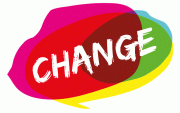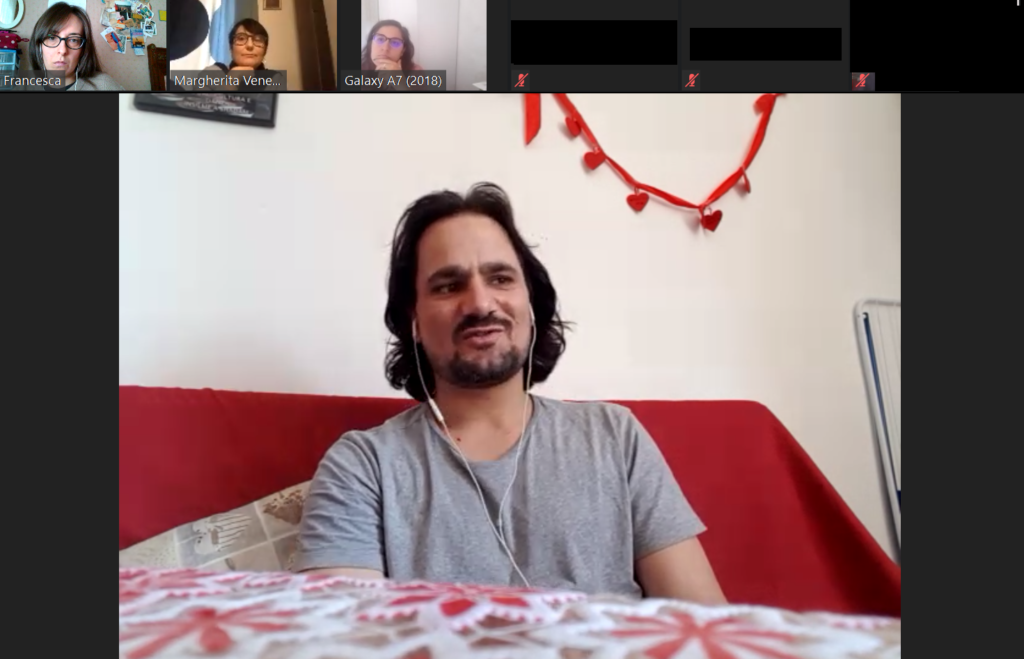In these two months of confinement caused by the COVID-19 pandemic, the Centro Astalli has adapted all its services to the emergency situation experienced in Italy. Educational and awareness-raising activities for middle and high schools have also changed. Moving this type of project online has not been easy, especially taking into account it is based on meeting refugee men and women in person in order to listen to their testimonies. In total, this has been a challenge for everyone: schools, teachers, students and refugees requiring a good deal of creativity. Schools and professors have had to adapt themselves to teaching online, learning how to use the digital platforms available. Beyond that, not all students have had access to a computer to attend class. As for refugees, it hasn’t been easy for some of them to learn how to connect to the different digital platforms used by schools, but we could not take for granted that all of them had an internet connection at home.
Although not all schools have been able to participate, we have continued our activities online with many students. In the beginning, we feared that not meeting the refugees in person could diminish students’ empathy towards them and their stories. An additional fear was that refugees would not feel as comfortable talking about themselves in front of a screen. However, teachers, students and refugees have adapted themselves accordingly and have been happy to continue working on CHANGE. Students have been able to listen to the testimonies of many refugees who have spoken about their lives and, even if on screen, have reached many students across Italy.
Through the encounter with students and teachers, refugees create new relationships that help them in their integration process. The school is definitely a place where their voices and testimonies find space and dignity again. With that, we hope to meet each other once again in November when schools open, together in a space where social relations grow and consolidate creating a more pluralistic society A development of real change.
Italian version
Una nuova creatività nella prossimità: in classe con Astalli al tempo del Covid-19
In questi due mesi di confinamento causato dalla pandemia di covid-19 al Centro Astalli, ha adattato tutti i suoi servizi alla situazione di emergenza vissuta in Italia. Anche le attività didattiche e di sensibilizzazione rivolte alle scuole medie e superiori hanno subito dei cambiamenti. Adattarci alla modalità digitale per continuare a portare avanti un progetto didattico basato sull’ascolto in classe di testimonianze di uomini e donne rifugiati non è stato facile. E stata una sfida per tutti, scuole, insegnanti, studenti e rifugiati, che ha richiesto una buona dose di creatività. Gli istituti e i professori hanno dovuto adattare la didattica alla modalità online, imparando ad usare le piattaforme digitali disponibili. Ma non tutti gli studenti hanno potuto usufruire di un computer dove poter seguire le lezioni. Per quanto riguarda i rifugiati, non è stato facile per alcuni di loro imparare a collegarsi alle diverse piattaforme digitali, anche perché per molti avere una connessione internet in casa non è qualcosa di scontato.
Anche se non tutte le scuole hanno potuto organizzare delle testimonianze online, abbiamo continuato le nostre attività con un gran numero di studenti. All’inizio temevamo che la mancanza di un contatto diretto con i rifugiati potesse far diminuire l’ascolto e l’attenzione verso di loro e le loro storie. E inoltre, che i rifugiati non si sentissero a proprio agio a parlare di se stessi di fronte a uno schermo. Tuttavia, studenti, professori, testimoni si sono adattati alle circostanze e tutti sono stati entusiasti di poter continuare a lavorare su Change. Gli studenti hanno avuto modo di ascoltare delle testimonianze di vita ed essere toccati dalle esperienze dei rifugiati; questi ultimi hanno avuto la possibilità di far arrivare comunque la loro voce a tanti ragazzi in tutta Italia, anche se attraverso la finestra di un computer.
Speriamo a settembre di poterci ritrovare a scuola, spazio comune in cui si formano, crescono e si consolidano relazioni importanti per la costruzione di una società plurale. Luogo in cui, attraverso l’incontro con studenti e professori, i rifugiati tessono nuove relazioni che contribuiscono giorno dopo giorno al loro percorso di integrazione; luogo dove si crea un nuovo tessuto sociale in cui con la loro voce e la loro testimonianza trovano spazio e ritrovano dignità.

